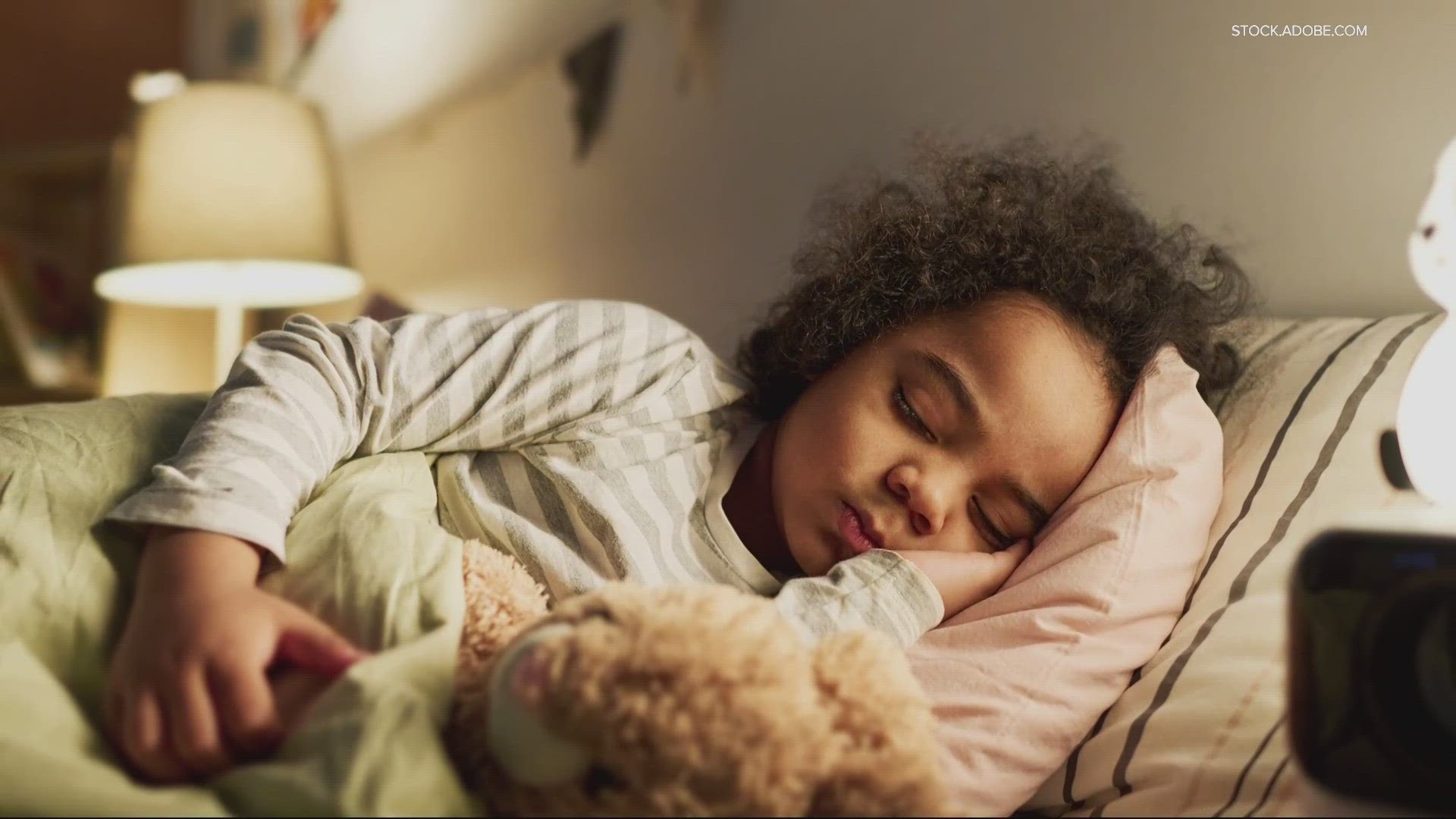PORTLAND, Ore. — New research from Oregon Health and Science University's School of Nursing is shedding light on how children’s health, sleep and trauma are intertwined.
The research, presented at this year’s American Heart Association’s Scientific Session meeting in November, found traumatic events might exacerbate the effects of poor sleep on children’s heart health.
The American Heart Association recommends getting a healthy amount of sleep to reduce chronic disease risk, promote healing and improve brain function, but many kids are getting either too much or too little rest.
The analysis of more than 100,000 children in the U.S. found that more than a third did not get the amount of daily sleep recommended by the American Heart Association.
They also learned children ages 6 to 17 who had more traumatic experiences, as reported by their parents, were more likely to also have too little or too much sleep.
The adverse childhood experiences included trauma, such as witnessing violence, living with a person with alcohol or drug dependencies and abuse. It also took into account whether the children had any unfair treatment because of their race, ethnicities or sexual orientation or gender identity, according to lead researcher and OHSU School of Nursing associate professor MinKyoung Song.
“It was as comprehensive as possible what they included of the traumatic event, what we call as Edward Charter experiences,” Song said.
This analysis adds to previous research that shows adverse childhood experiences and insufficient sleep are both associated with negative cardiovascular outcomes later in life.
Song said it’s important to pay attention to your child’s sleep. It’s also important, she added, as a community, to ensure children are getting proper resources to address trauma.
“Is there a way that they can talk to their parents or their primary care providers, so that if they already have some type of trauma event already, then we wanted to give some support?” she suggested.
So how much sleep does a child need per night? Here are the guidelines from the American Heart Association.
- Infants 4 to 12 months old: 12-16 hours
- 1- to 2-year-olds: 11-14 hours
- 3- to 5-year-olds: 10-13 hours
- 6- to 12-year-olds: 9-12 hours
- 13- to 18-year-olds: 8-10 hours
For more information on this study, visit newsroom.heart.org.

